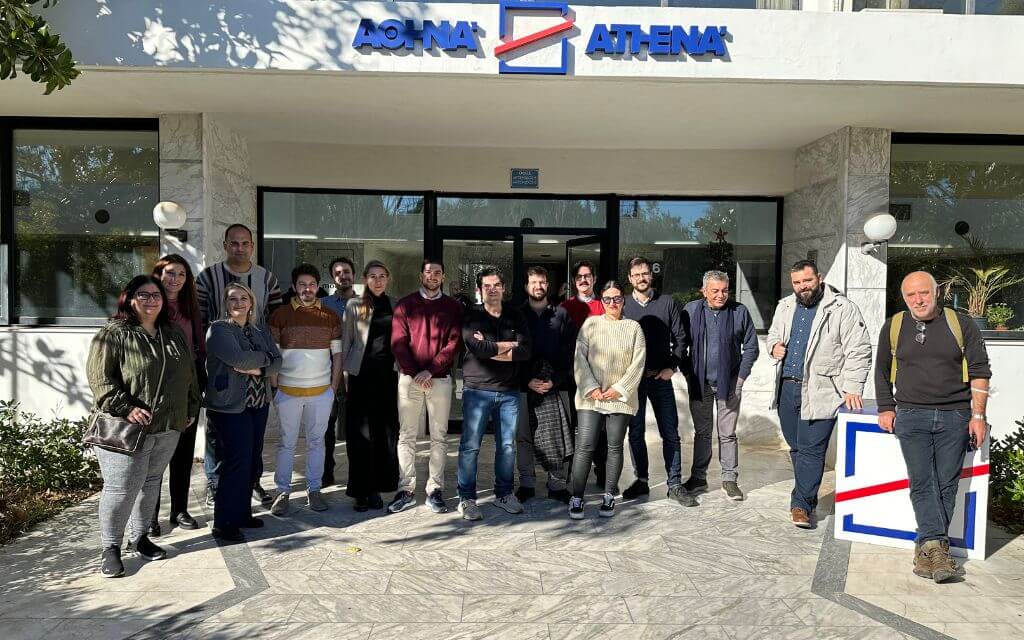The consortium of the ARGUS project held a hybrid meeting online. Discover more.

In December 2023, a new Horizon Europe project funded by the European Union and coordinated by Athena Research Centre started.
Innovation has always been the key to safeguarding our past for future generations. Enter ARGUS - a groundbreaking initiative that will contribute to the way we monitor and protect remote cultural treasures. Over the course of the next three years, ARGUS will embark on a mission to address the pressing challenges surrounding the monitoring of remote built heritage assets, while simultaneously pushing the boundaries of preventive preservation research. Drawing inspiration from the current landscape of heritage conservation,
ARGUS envisions the development of several ambitious goals:
- Crafting a cutting-edge built heritage digital twin model capable of supporting multi-scale and multi-modal data.
- Implementing an advanced digitization strategy to bolster the effectiveness of the digital twin model.
- Introducing a portable measurement system equipped with non-destructive physical and chemical monitoring capabilities, utilizing miniaturized sensors and sensor composites integration for both ground and aerial applications.
- Harnessing the power of artificial intelligence to develop methods for modeling and identifying threat factors, enabling proactive intervention measures.
- Utilizing AI-driven multimodal data fusion techniques to integrate remote sensing climate, weather, and pollution data with natural disaster statistics and governmental data, enhancing predictive capabilities.
- Establishing trustworthy AI decision support methods to guide preventive preservation efforts with precision and reliability.
The innovation spearheaded by ARGUS isn't limited to the academic sphere. It promises to impact a wide array of stakeholders:
- Researchers and academics will gain access to invaluable data from ARGUS monitoring systems, along with processed data insights, white papers on multimodal digital twin technology, and dynamic visualizations.
- Heritage managers and practitioners will benefit from real-time monitoring capabilities, long-term status analyses, and predictive preservation predictions, facilitating informed decision-making.
- Authorities tasked with overseeing cultural heritage will find ARGUS instrumental in developing and implementing effective preservation strategies.
- Even the general public will be engaged through real-time visualizations, crowd-sourced contributions to preventive preservation efforts, and opportunities for citizen involvement in research and innovation initiatives through Living Labs and Hackathons.
As ARGUS embarks on this transformative journey, it heralds a new era of collaboration, innovation, and sustainable heritage preservation. Stay tuned as we witness the evolution of heritage conservation through the lens of cutting-edge technology and visionary thinking.
The ARGUS consortium is composed of 13 partners from 6 different countries (GR, CY, IT, ES, DE and CH) covering a variety of expertise, in social sciences and humanities, in humanities computing, in science and engineering and in remote sensing and digital humanities.
Discover the ARGUS partners here.
To discover more, visit the official profile on CORDIS and follow us on Twitter/X and LinkedIn to stay updated on the latest news and activities.
Funded by the European Union. Views and opinions expressed are however those of the author(s) only and do not necessarily reflect those of the European Union or REA. Neither the European Union nor the granting authority can be held responsible for them.